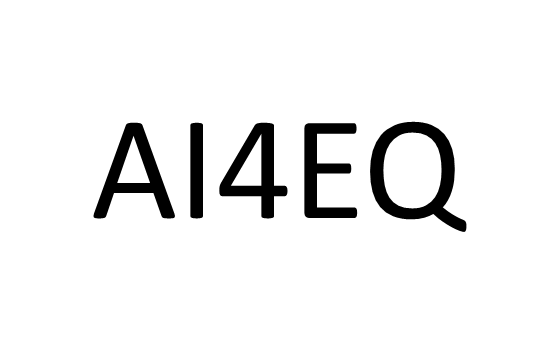News
Response to the Public Consultation on the European Commission «White Paper On Artificial Intelligence: A European Approach to Excellence and Trust»
The European Commission has opened the consultation process on the «White Paper on Artificial Intelligence: a European Approach Oriented to Excellence and Trust».
As a group of professionals and researchers from different fields related to Artificial Intelligence (hereinafter, AI) we are making a proposal to expand and improve the current approach of the White Paper, which we believe suffers from important shortcomings.
Firstly, we believe that the European commitment to the United Nations 2030 agenda should take centre stage. The White Paper’s approach in this regard is technologically reductionist, with a view of public AI policies that appear to be exclusively designed to improve competitiveness, with no consideration of AI as a tool to improve people’s living conditions, with particular attention to vulnerable groups, of which Europe also has its share. As the United Nations has recognized, the Sustainable Development Goals cannot be achieved without a people-focused science-based digital revolution.
Secondly, we request that the White Paper include a strategy for the universalization of the benefits of AI. In this regard, we make two important observations, the first concerning openness in the sense of the upcoming UNESCO Open Science Recommendation: open source, open data, open algorithms, etc. are enabling factors for achieving universalization of the benefits, facilitating dissemination and auditing.
In addition to promoting openness, concrete initiatives are needed to promote data ecosystems that minimize AI biases, for example by opening public-sector data sources with high scientific and social value.
The benefit obtained from AI depends on the quality of the data. Social institutions and organizations should also have access to private sector data that has a vital or significant public interest, which implies the interconnection of diverse data sources. This also requires designing services with adequate security and privacy and that optimize the usage and accessibility of the data in this interconnection context.The second observation we make about universalizing the benefits of AI is to warn about the emergence of an AI divide that would overlap with the already worrying digital divide that remains worldwide. There is a risk that the use of AI will lead to new inequalities and create difficulties in the endeavor to improve opportunities for vulnerable groups, creating an additional barrier: that of those who will benefit from AI, and those who will not (minorities discriminated against because of social biases and stereotypes amplified by big data techniques, small businesses at a competitive disadvantage because they lack the infrastructure required by AI, etc.).
Thirdly, we believe that the current draft of the White Paper lacks a sufficiently deep analysis of ethical and methodological issues that should lead to the development of Algorithmic Justice. There is a need to bring order to the current landscape of overabundance of ethical codes, guidelines and frameworks, many of which suffer from deficiencies such as lack of scientific rigour, subjectiveness, incoherence, superficiality and redundance, thus generating confusion. We believe that the White Paper should promote R&D in the design of applied-ethics tools and in the definition of indicators of the impact of these technologies on society. R&D in certifying the explainability and justice of algorithms is also essential.
Other important aspects discussed in the document summarized here are overcoming ethnocentric and androcentric approaches, the need for AI education and literacy, the opening of dialogue mechanisms among all social actors, or the need to encourage multi-scale experimentation prior to the mass use of AI. We also warn of some of the risks of AI that are not mentioned in the White Paper and which we believe could be amplified by prioritising a vision focused exclusively on commercial competitiveness, which also risks becoming obsolete in the face of the profound social and economic changes that European society is experiencing. The White Paper refers to human rights, but only develops civil and political rights (privacy, political rights and freedoms), ignoring social, economic and cultural rights. Finally, the document summarized here also addresses the need to open a dialogue regarding the public infrastructures that are required to ensure that AI benefits society as a whole.
We therefore call for the dissemination of this document, in which we have attempted to address what we consider to be the most worrying issues, as a focal point for constructive action. We call upon AI researchers and practitioners, together with researchers and professionals from other disciplines who are involved with AI technologies, to add their signature so that many more voices can prevail upon the European Commission to integrate these key issues into the AI strategy defined in the White Paper.
The guidelines in the European Commission’s White Paper advocate individual commitment and self-regulation, considering that regulatory intervention could limit potential innovative capacity, which we consider may lead to negative medium- and long-term impacts even on European values themselves. The guidelines also defend the assumption of responsibilities focused on the correct development of algorithms but not on the social effects and impact of their use. Finally, they promote accountability for a number of commitments to technological principles (e.g. transparency) but not to upholding values (e.g. equity). All this entails a limiting and reductionist AI framework. We need to go beyond an AI framework that is restrictive, reductionist and self-regulated, and work towards a future in which not only are citizens protected against the risks of AI but in which AI is empowering and makes a decisive contribution to bringing peace, prosperity, and justice, and to enhancing social, material and spiritual well-being.
The issues involved are explored in a little more depth in the following sections.
Contents
- The approach of the White Paper is technologically reductionist, in contradiction with the European commitment to the Agenda 2030, which is not given its due centrality and, indeed, is hardly mentioned.
- The approach is also ethnocentric and androcentric.
- Universalizing the benefits of AI.
- On the education of AI professionals and the digital literacy of the population.
- On the need for dialogue between all social actors, not only industry, with the public sector.
- On the need for ethical reflection and for methodologies and techniques to support applied ethics.
- On the need to encourage multi-scale experimentation (with the application of tools of applied ethics and emphasis on impact studies) before promoting the massive use of AI in the private sector, including SMEs, and the public sector.
- Important risks not mentioned in White Paper.
- Conflicts between AI and fundamental rights.
- Public data infrastructures.
- Conclusions.
- References.
Thanks to Sara Castro for help with building these web pages.

